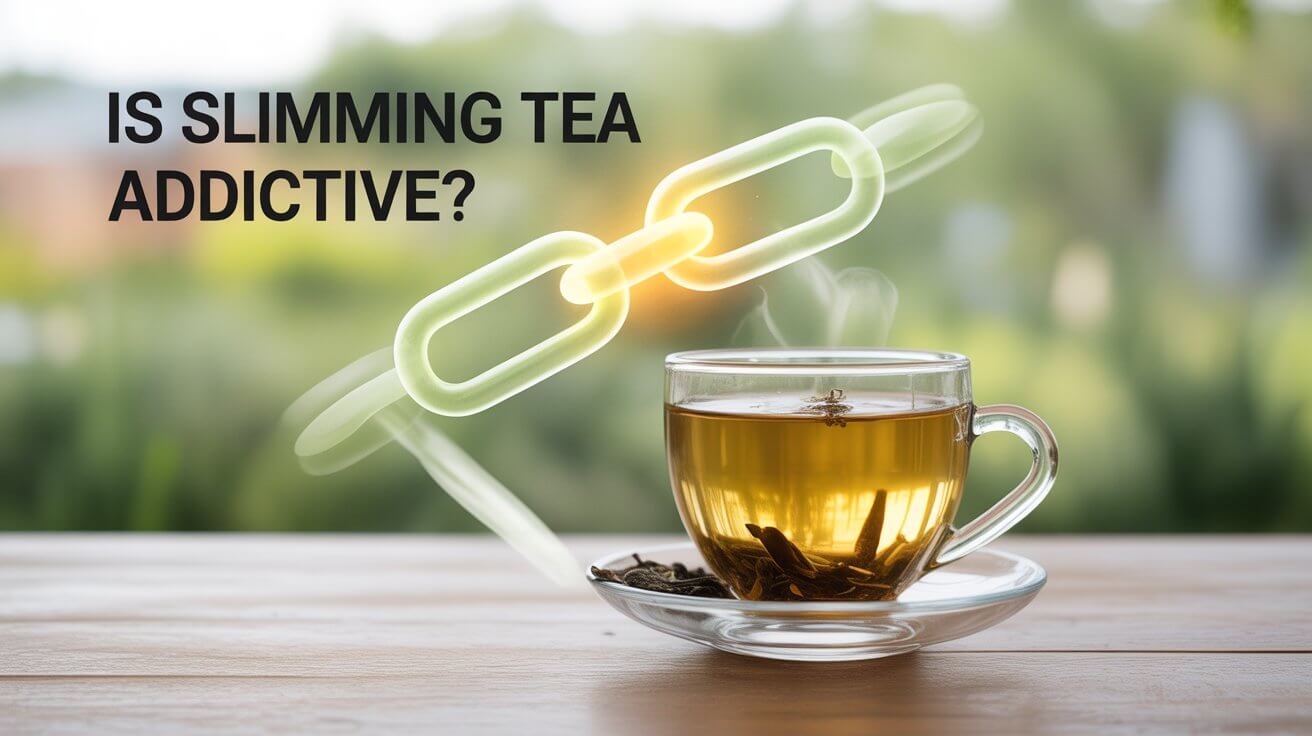Slimming tea has become a popular choice for people looking for natural ways to support weight loss and improve digestion. But with its rising popularity comes a common question: Is slimming tea addictive?
Understanding the potential for addiction or dependency is important for anyone considering slimming tea as part of their routine. This article explores the facts, the ingredients involved, and how to use slimming tea safely for sustainable results.
What is Slimming Tea?
Slimming tea is a specially crafted herbal blend designed to support metabolism, improve digestion, and aid in weight management. These teas often contain herbs like green tea, oolong tea, ginger, and senna, along with other plant-based ingredients.
The purpose of slimming tea is not just to assist with weight loss, but also to promote general wellness through hydration and improved digestion. Many slimming tea blends are low in calories and can easily fit into daily routines.
For those exploring slimming tea as a lifestyle addition, All Day Slimming Tea offers carefully selected blends designed to deliver results without harmful side effects.
Understanding Addiction
Before we answer whether slimming tea is addictive, it’s important to understand what addiction means. Addiction is typically defined as a compulsive need for and use of a substance despite harmful consequences. This can involve physical dependence, psychological reliance, or both.
With herbal products like slimming tea, the discussion usually centers on two concepts: physical dependency and habit formation. While certain ingredients can cause mild physiological effects, most herbal teas do not trigger the same addictive pathways as substances like nicotine or alcohol.
Slimming Tea Ingredients and Their Effects
Let’s break down common slimming tea ingredients to see if any have addictive properties:
-
Green Tea: Contains caffeine and antioxidants. Caffeine can cause mild dependence in some people, but it is generally considered safe in moderate amounts.
-
Oolong Tea: Similar to green tea, it has caffeine and beneficial polyphenols.
-
Senna: Acts as a natural laxative. Overuse can cause digestive dependence, but occasional use is generally safe.
-
Ginger & Herbal Extracts: Known for digestion and metabolism support; no addictive properties.
While caffeine is mildly addictive for some, the amounts in slimming tea are usually low compared to coffee. Any dependency is typically mild and can be avoided by limiting excessive consumption.
Potential for Dependency or Habit Formation
The idea that slimming tea is addictive is often linked to two main concerns: caffeine dependence and laxative tolerance.
-
Caffeine dependence: If you drink slimming tea daily for months, your body may adapt to caffeine, leading to mild withdrawal symptoms like headaches if you stop suddenly. This is common with many caffeinated beverages and not unique to slimming tea.
-
Laxative tolerance: Some slimming teas contain senna or other herbal laxatives. Overuse can cause your digestive system to rely on the laxative effect, which is not recommended for long-term use. Responsible use of slimming tea avoids this issue entirely.
Habit formation the regular act of drinking slimming tea is different from addiction. For many people, enjoying slimming tea is a healthy daily habit, similar to drinking coffee or herbal tea for relaxation and wellness.
Health Considerations
For most people, slimming tea is safe when used as directed. However, it’s important to avoid excessive consumption to prevent potential side effects such as digestive discomfort or mild caffeine dependency.
When choosing slimming tea, quality matters. Look for blends that use natural ingredients without artificial additives. A high-quality slimming tea blend from All Day Slimming Tea is designed for safe daily use while supporting your health and weight-loss journey.
Responsible Use of Slimming Tea
To use slimming tea safely and avoid any dependency:
-
Drink in moderation, following the product’s directions.
-
Avoid relying solely on slimming tea for weight loss combine with healthy eating and exercise.
-
Rotate herbal blends to prevent tolerance and maintain effectiveness.
-
Consult a healthcare professional if you have any underlying health conditions or concerns.
Conclusion: Is Slimming Tea Addictive?
Slimming tea is not addictive in the way substances like nicotine or alcohol are. While some ingredients contain caffeine or mild laxatives, these do not cause the compulsive dependency typical of addictive substances. However, overuse can lead to mild tolerance or habit formation.
When used responsibly, slimming tea is a safe and natural addition to a healthy lifestyle. For a convenient, effective, and safe option, consider exploring the high-quality blends available at All Day Slimming Tea. These teas are designed to support your wellness goals without harmful side effects.


Leave a Reply